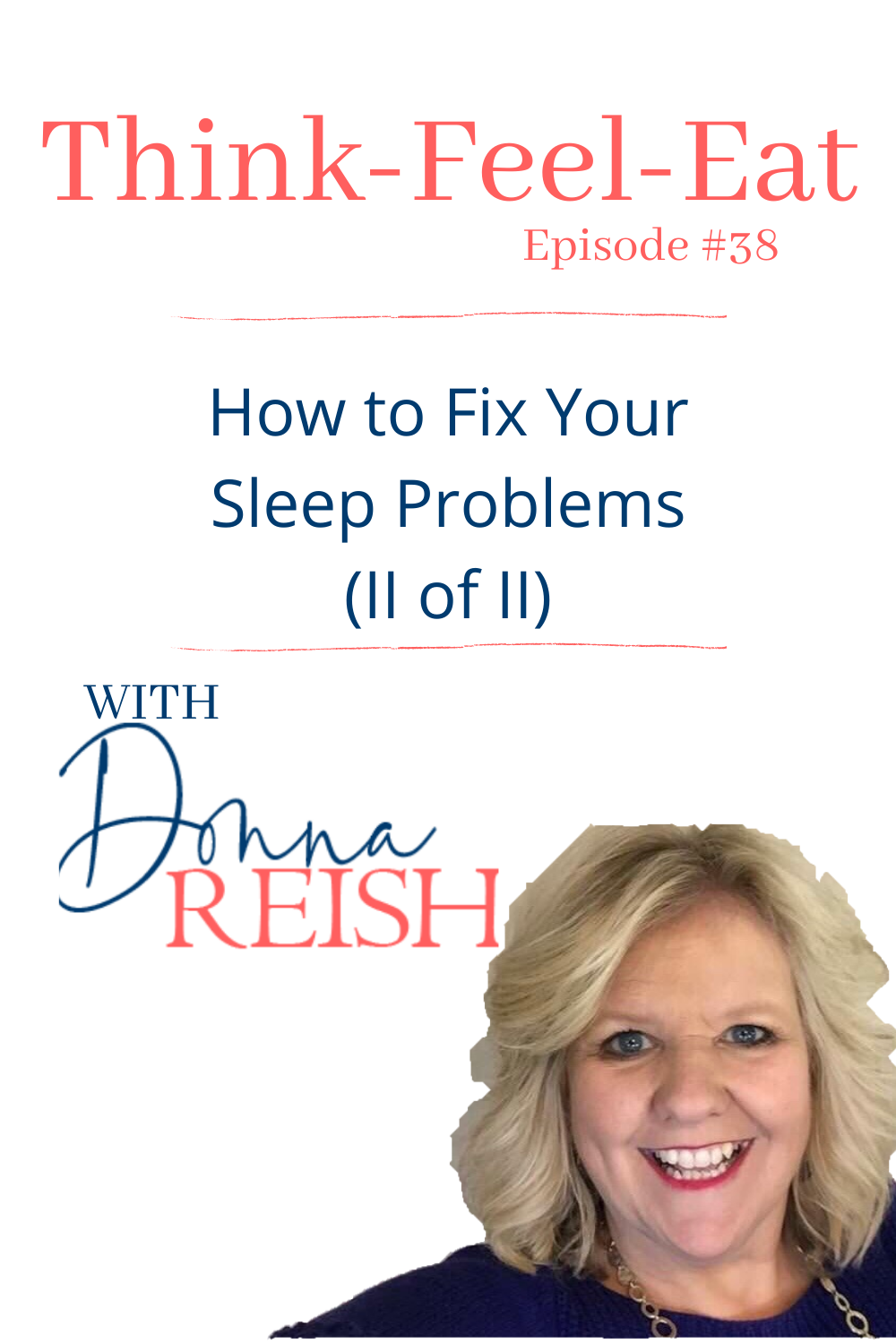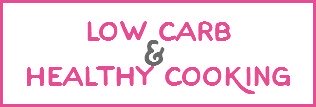Hi! I’m Donna Reish, IF teacher, weight loss coach, blogger, and half of “The Minus 220 Pound Pair” as my husband and I have lost over 220 pounds together (160 of that in the past couple of years through the Weight Loss Lifestyle habits and strategies I teach!).
In this episode, I present the second part of two on how to fix your sleep problems.
Low sleep (under seven hours) has been found to cause an increase in the hunger hormone ghrelin; a decrease in the satiety hormone leptin; a decrease in fat loss (in part due to raised cortisol levels); a lack of impulse control; and more.
How can we skip something that is so amazingly wonderful (oh I love sleep)?
It oftentimes isn’t for lack of wanting!
Going to sleep is as much a discipline problem as getting up. (And if we fix going to sleep we will often fix the getting up part!)
But there are many factors that come into play that cause us not to be able to sleep.
I tackled many of these last week in TFE #38: lifestyle issues; planning your day around light and darkness; moving more at the right times; and more.
In this week’s episode I finish the fix your sleep advice with some of the following areas:
1) Insomnia causes and solutions
2) Insomnia and fasting
3) Caffeine
4) Blue light
5) Magnesium
6) Hunger
I have worked hard on my sleep—literally creating rules and protocols, developing new tiny habits incrementally, and making sure I get my 7.5 hours almost every night. It has made such a big difference for me!
Find all of my episodes, outlines, and articles for my two weekly broadcasts:
Think Feel Eat #39 How to Fix Your Sleep Problems (II of II)
A. Review
1. Effects of too little sleep TFE #34
2. Fix Sleep Problems (Part I): TFE #38
3. Stress and Cortisol
b. #37: Stress and Cortisol II
4. Sleep affects weight loss, hunger, appetite, cravings, satiation, and urges (plus more!)
a. Weight loss hormones ghrelin and leptin—hunger and satiation
b. Decreased fat loss
c. Lack of impulse control
d. Food cue responses
e. Holding on to fat
B. Insomnia General and Fasting
1. General
a. Anything that interferes in circadian rhythms
b. Circadian rhythms control our wake and sleep cycles plus other functions throughout body and brain
c. The “master clock” tells the 37 trillion cells what to do
2. Insomnia and fasting
a. After a couple of days, you should sleep BETTER with fasting
b. When you start burning fat instead of sugar at first, you release a hormone that stimulates wakefulness
c. Insomnia with fasting WILL go away as your circadian rhythms catch up to the new eating times, hunger goes away, your body goes seamlessly into fat burning (rather than that big jump from sugar burning to fat burning each day during the early days of fasting)
d. It will be similar to adapting to a new time zone after flying—but will even out quickly
e. Food affects circadian rhythms’ many clocks—like the sun keeps track of the sleep time, your first bite of food and last bite of food set your new “food” circadian rhythms….so everything might feel out of whack for a couple of days
f. Fasting usually causes more happiness, better mood, and great sleep once you’re into it several days—causing a more pronounced circadian rhythm due to food intake being restricted to certain times of day
g. When your eating is done well before bed, your digestion and food processing is over at bedtime
h. Melatonin is released better when insulin isn’t released—so no food at night causes melatonin to be even stronger; low insulin is linked to higher melatonin and better sleep
C. Causes of Insomnia
1. Caffeine
a. Raises cortisol level–80% of people drink coffee in US
b. Caffeine’s effects on sleep
c. Has half life—at the 4-6 hour mark, you still have half the caffeine in your system
d. Some people seem unaffected but may be affected after all
e. 200-400 mg per day maximum
f. Each medium cup of coffee/most teas have 90-100 mg each
2. Blue light
a. Controls melatonin secretion
b. Artificial blue lights (lightbulbs, computers, devise etc.) all suppress melatonin levels at night when they should be increasing
c. Hungry Brain: “Your body’s 37 trillion cells don’t get the message that it’s nighttime until you turn out the lights—several hours after the sun goes down. This pushes your biological wake-sleep cycle back by a few hours relative to the day-night cycle of the sun, desynchronizing the two.”
d. Thus, time to go to sleep—body isn’t ready; time to get up body isn’t ready.
e. Cortiosol 40% higher in mornings after being exposed to blue light 30 minutes before sleep (even if you slept okay!)
f. Blue light blocking glasses .
3. Magnesium deficiency
a. Leg and foot cramps, muscle cramps, headaches, insomnia, anxiety, and depression or “the blues” are signs of magnesium deficiency
b. Happens during fasting due to mineral imbalances, eating less, etc.
c. Magnesium blocks the release of cortisol in the brain (less stress more sleep!)
d. Magnesium supports the release of melatonin…..more, longer, faster sleep!
e. Get more magnesium!
i. Supplement
ii. Mineral water
iii. Epsom salt baths—do give magnesium but not easily assimilated into the skin layers—might be good for relaxing but don’t count on it to help with a true magnesium deficiency
4. Hunger
a. Especially early into fasting
b. Work on timing your fast to fall asleep before you get hungry at night (I used to end my eating window at 7 or so…now I end it between 8 and 9 so I don’t get hungry from 9 to 11 when I have time to be with my husband/to relax.
c. Satiety vs satisfaction
i. Might need more fat as it will stay in your body longer (satiation)
ii. Might need more carbs for satisfaction or slow carbs for satiation
D. Get More Help!
1. Join our holiday weight loss challenge
2. Join my FREE FB group where I record videocast/podcast episodes!
3. Emails with teaching around weight management—articles, videos, free charts and booklets, and more
4. Take my month-long Intermittent Fasting course
5. Schedule a free 30 minute coaching consult!













